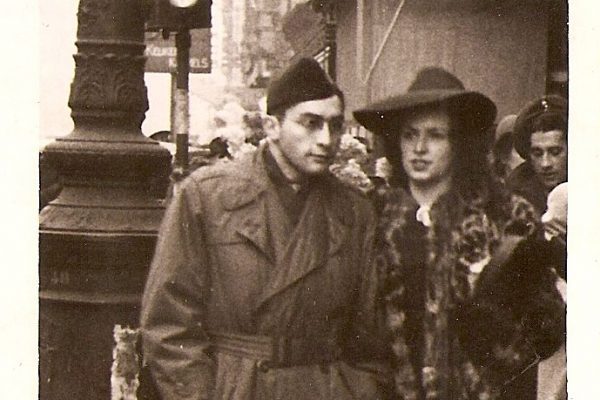Dr. Susan Cernyak-Spatz and Bernard Fishman

“My mother, after 20 years as a Midwestern housewife, returned to school after her young life had been interrupted, received a Ph.D., and took her first university job at UNC Charlotte in 1972 as a professor of German and German literature. She was instrumental in starting and teaching the first classes here in Holocaust Studies and developed what is now a robust program and course of study at this campus.
She has traveled far and wide telling her story to audiences of all generations and telling the cautionary tale of political power, evil and the apathy that led to genocide during WWII. Her autobiography, Protective Custody: Prisoner 34042: A Holocaust Survivor Memoir, has been published for years. It’s not a memory, per se, that my parents left with me but an enormous debt of gratitude for teaching me the importance of speaking up against injustice; it’s a lesson from a generation who lived through that period in history.”
– Wendy Fishman, Director of Collaborative Works, College of Art + Architecture
Dr. Susan Cernyak-Spatz and Bernard Fishman, remembered by their daughter, Wendy Fishman
Professor Emerita Susan Cernyak-Spatz was a teenager caught in the Holocaust; her future husband was a Midwestern GI with the second wave of D-Day.
Both my parents were involved in WWII; my mother was a young Viennese teenager caught in Nazi Germany’s Holocaust and my father was a Midwestern GI serving his country who went to Europe with the second wave of D-Day. My mother and her parents were affluent, educated Jews who fled throughout the cities of Europe — Berlin, Vienna, Prague — only to be followed by the constantly impending Nazi invaders.
The noose finally closed in on them in Prague and they were deported to the Nazi concentration camps in Czechoslovakia and then moved east to the death camp of Auschwitz-Birkenau in Poland. My mother’s mother was sent to the gas chambers with millions of others but my mother survived for 2½ years in the camp.
After being liberated by the Americans during the “Death March” to Germany walking through one of the worst winters in their history, my mother assisted the Allies as an interpreter in the refugee camps since she was fluent in three or four languages. It was during the post-war refugee period when she worked in Belgium that she met my father, an American GI. Not long after they met, they married and he was on his way back to the Midwest with his new European wife. My father, Bernard Fishman, spoke very little about his American war experience but he saved all his war memorabilia and medals in a cigar box.